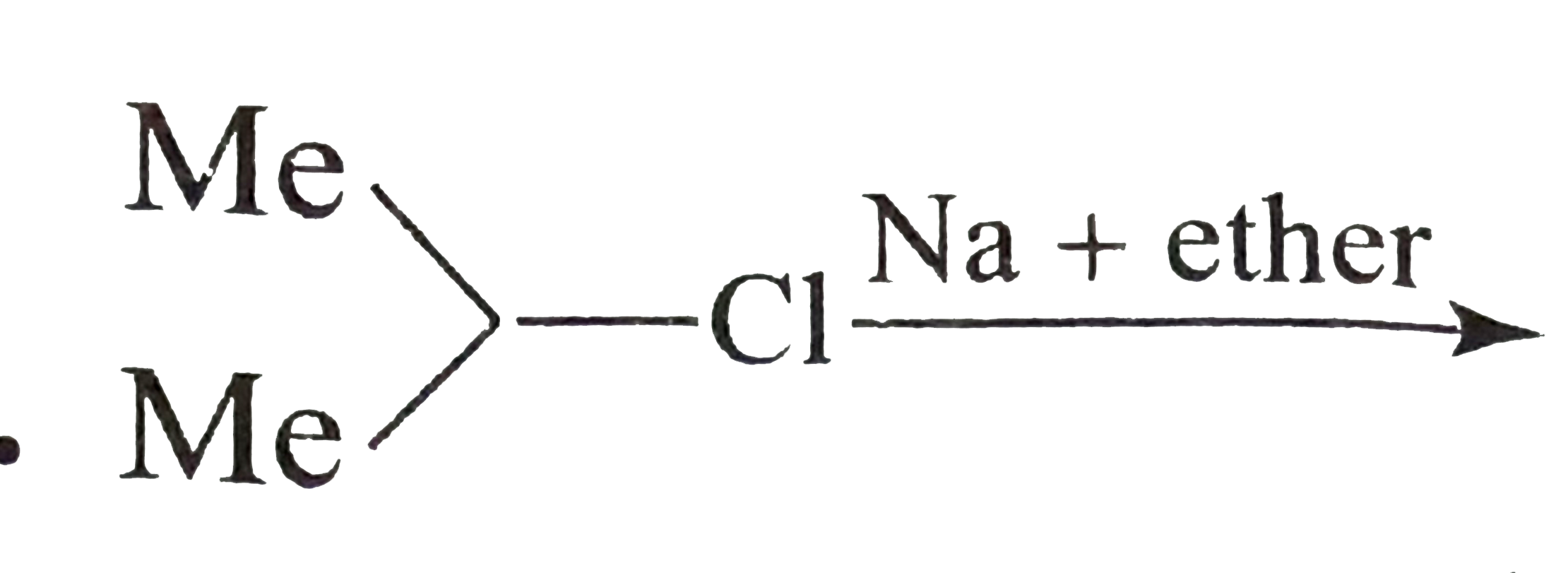What are the products 'A' and 'B' in the following sequence reactions :
1. 2. Solution in Malayalam
Step by step video & image solution for What are the products 'A' and 'B' in the following sequence reactions : 1. CH_(3)-CH_(2)-COOH underset(Br_(2))overset("Red 'P'")rarr A 2. A underset(H^(+))overset("alc.KOH")rarr B by Chemistry experts to help you in doubts & scoring excellent marks in Class 12 exams.
Updated on:21/07/2023Topper's Solved these Questions
- CARBOXYLIC ACIDSBOOK - BRILLIANT PUBLICATIONCHAPTER - CARBOXYLIC ACIDSEXERCISE - LEVEL-II (Assertion -Reason)
4 Videos
- CARBOXYLIC ACIDSBOOK - BRILLIANT PUBLICATIONCHAPTER - CARBOXYLIC ACIDSEXERCISE - LEVEL-II (Assertion -Reason)
4 Videos
- CARBOXYLIC ACID & THEIR DERIVATIVESBOOK - BRILLIANT PUBLICATIONCHAPTER - CARBOXYLIC ACID & THEIR DERIVATIVESEXERCISE - LEVEL-III (Linked Comprehension Type)
12 Videos
- CHEMICAL KINETICS BOOK - BRILLIANT PUBLICATIONCHAPTER - CHEMICAL KINETICS EXERCISE - LEVEL II
75 Videos
Similar Questions
Assertion : p-chlorobenzoic acid is more acidic than p-fluorobenzoic acid.
Reason : +R effect of fluorine is higher than that of chlorine due to the matching size of carbon and fluorine.
View SolutionAssertion : p-chlorobenzoic acid is more acidic than p-fluorobenzoic acid.
Reason : +R effect of fluorine is higher than that of chlorine due to the matching size of carbon and fluorine.
View SolutionParagraph
An organic compound A(C9H6O3) does not react with aqueous solution of NaHCO3 as well as does not change the colour of litmus paper. Aon acid hydrolysis gives B(C9H8O4) as major product whereas A on treatment with one equivalent of methanol in acidic medium gives C(C10H10O4) as the major product (other minor isomer of C is also formed). B on heating with sodalime gives toluene. Answer the following questions based on the above information.
The structure of A satisfying above conditions is
View SolutionSelect the incorrect statement:
View SolutionComplete the following sequence of reactions with appropriate structures. CH_(3) -CH_(2) -COOH overset(P and ) underset("Bromide") rarr (A) (A) overset((i) Alc. KOH (excess)) underset((ii) H^(oplus))rarr (B) .
View Solution (B)2mol−−−−−−→Cl2+hv (C)2mol−−−−−−−−→Alc.KOH
(B)2mol−−−−−−→Cl2+hv (C)2mol−−−−−−−−→Alc.KOH
(D) CH2=CH2−−−−−−−→Δ (E)
The final product (E) is :
View SolutionIn the following reaction order , B is
CH3CH2COOHP/Br2−−−→AalcKOH−−−−→H+B
View SolutionH_(3)C-CH_(2)-overset(CH_(3))overset(|)(CH)-underset(O)underset(||)(C)-NH_(2) overset(Br_(2)+KOH)underset(Delta)rarr A overset(1.CH_(3)I("excess"))underset(2.AgOH,Delta)rarr B The major product (B) is:
View SolutionMe−CH2−CH2OHKMnO4/H+−−−−−−−−→(A)RedP+Br2−−−−−−→(B)NH3−−−−−→(excess)(C)
Then :
View SolutionCH_(3)CH_(2)COOH underset("Red P")overset(Cl_(2))rarr A overset(Alc. KOH)rarr B what is B ?
View SolutionGiven the following sequence of reaction
CH3CH2INaCN−−−→AOH−−−−−−−−→PartialHydrolysisBBr2/NaOH−−−−−−→C
The major product 'C' is
View SolutionIn the reaction
2CH3C∣∣OCH3Base−−→AΔ−−→B the product B is :
View SolutionCH3COOHAgOH−−−−−→Br2[A]AgCN [B] HOH−−→ [ C] + [D], in reaction [C] & [D] are
View SolutionCH3COOHAgOH−−−−−→Br2[A]AgCN [B] HOH−−→ [ C] + [D], in reaction [C] & [D] are
View SolutionCH3−CH3| C | CH3−COOH+Br2Red P−−→[Product]
The product of the above reaction is -
View SolutionCH_(3)CH_(2)COOH underset("red P")overset(Br_(2))to A overset(Br_(2))toB What is B?
View Solution
